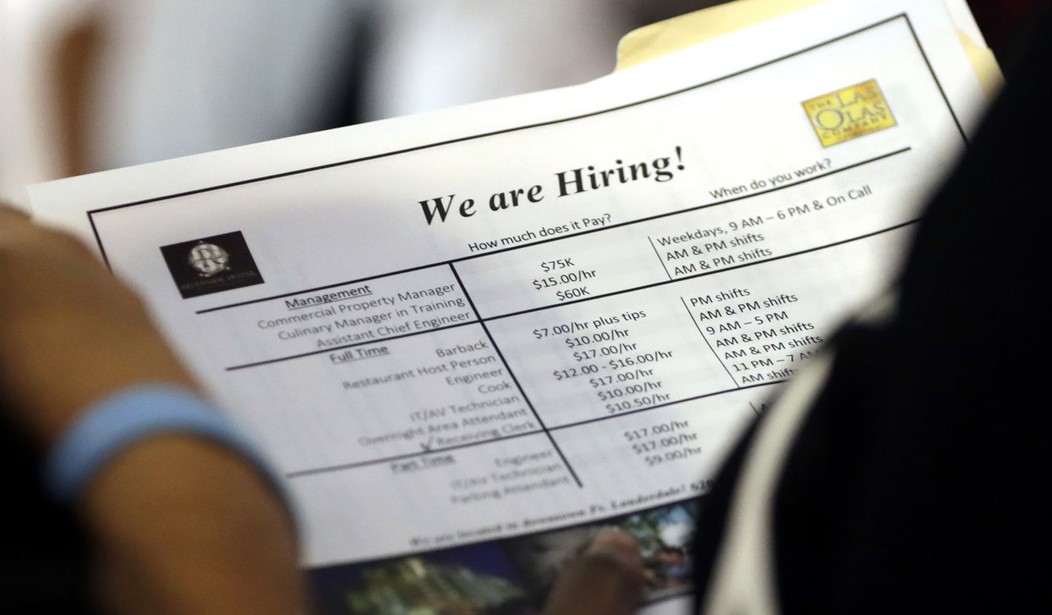Donald Trump is looking to replace the $600 a week Pandemic Unemployment Benefit with a back-to-work bonus that will incentivize working for many of the 30 million people currently receiving the enhanced benefit. The benefit is set to expire July 31 and Democrats want to expand it into next year.
A study done by the Federal Reserve found that the federal unemployment benefit was making it difficult for companies to hire workers as the economy reopens following the lockdown.
Even though the unemployment rate is expected to register over 20% for May in the jobs report the Bureau of Labor Statistics will release June 5, employers reported difficulty in hiring during the severe economic contraction resulting from the coronavirus shutdown.
“Contacts cited challenges in bringing employees back to work, including workers’ health concerns, limited access to childcare, and generous unemployment insurance benefits,” the Beige Book summary said.
That $600 a week is on top of state unemployment benefits that some states have also expanded. The bottom line is, workers are asking themselves why go back when I’m making more money sitting at home?
In particular, the various Fed districts noted the impact of expanded unemployment benefits, including the extra $600 a week under the Cares Act.
“Some businesses have already made efforts to recall laid off workers, as well as hire new workers. A number of these firms noted that this has been challenging, with many unemployed workers reluctant to return to work—some attributed this to generous unemployment benefits, as well as safety concerns,” according to the New York Fed.
“The president is looking at a reform measure that would still provide some kind of bonus for returning to work, but it will not be as large and it will create an incentive to work,” said Larry Kudlow, the president’s chief economics advisor.
How large? It won’t be cheap.
One from Sen. Rob Portman, R-Ohio, would replace the $600 weekly checks with temporary payments of $450 a week for those who return to work. Recipients would get the $450 plus their job’s wages.
Another proposal, from Rep. Kevin Brady, R-Texas, would let workers who accept a job offer keep two weeks’ worth of $600 enhanced unemployment benefits. Normally, if someone finds work, they would lose their unemployment benefits. The concept is comparable to a $1,200 “hiring bonus,” Brady said.
The reality is, with the unemployment rate so high, the enhanced benefits are likely to be extended, although over a much shorter time period than Democrats have demanded.
Lawmakers will likely compromise and extend enhanced unemployment benefits in some form after July to avoid sending household income over a “cliff” for millions of Americans, according to Ernie Tedeschi, an economist at Evercore ISI.
That’s because states generally replace between 30% and 50% of one’s prior wages, Tedeschi said. (The $600-a-week enhancement aimed at fully replacing job wages for the average worker, who makes about $1,000 a week.)
“That [would be] a giant benefit cut,” Tedeschi said.
Republican proposals leapfrog off an unexpected addition of 2.5 million jobs to the U.S. economy in May, versus an expected loss of around 7.5 million.
Employment always lags coming out of a recession and even with furloughed workers being called back, the unemployment rate is likely to remain stubbornly high. But some kind of incentive must be given for people to get out of the house and back to productive labor.
The back-to-work bonus is a good idea but needs to be refined to incentivize work for the highest number of people without breaking the bank.










Join the conversation as a VIP Member